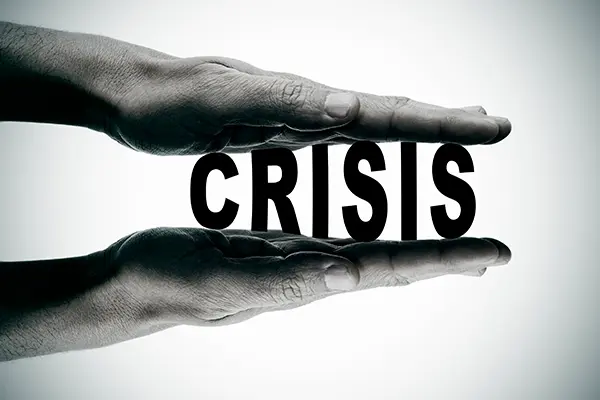Crisis counseling is a short-term therapeutic intervention designed to help individuals who are experiencing an acute emotional crisis or distressing situation. The goal is to provide immediate support and coping strategies to manage overwhelming emotions and help the person regain a sense of stability. A crisis can arise from various events, such as trauma, loss, illness, or major life changes.

Key Features of Crisis Therapy:
1. Immediate Support:
Crisis therapy is focused on addressing the emotional, psychological, and situational needs of a person in distress. The therapist provides immediate relief by offering a safe and supportive environment.
2. Short-Term Intervention:
Unlike long-term therapy, crisis therapy typically takes place over a brief period, ranging from a few sessions to a few weeks, depending on the situation. The goal is to help the person manage their emotional state and stabilize.
3. Focus on Coping Skills:
Crisis therapy helps individuals develop practical coping mechanisms to deal with the immediate stress and emotional upheaval. These may include relaxation techniques, problem-solving skills, or grounding exercises.
4. Restoring Functioning:
A primary objective is to help the person regain their ability to function in daily life. This involves reducing the intensity of the crisis, addressing acute symptoms, and creating a plan for further support or follow-up care if needed.
When Is Crisis Therapy Used?
Crisis therapy is typically used when someone is facing a traumatic or overwhelming event, such as:
- Grief or Loss: The death of a loved one, breakups, or major life transitions.
- Trauma: Physical or emotional trauma, such as abuse, accidents, or witnessing violence.
- Mental Health Crises: Situations like severe anxiety, panic attacks, suicidal thoughts, or substance abuse episodes.
- Natural Disasters or Accidents: Experiencing a natural disaster, car accidents, or other catastrophic events.
- Major Life Changes: Divorce, job loss, or financial stressors.
Types of Crisis Therapy:
1. Individual Crisis Therapy:
This one-on-one therapy is tailored to the individual’s needs and may involve discussions about the event, exploring feelings, and teaching coping strategies. The therapist works to stabilize the person’s emotional state and help them regain control.
2. Crisis Intervention:
This is a more structured approach that involves specific steps to de-escalate the crisis. The therapist helps the person assess the crisis, identify immediate needs, and take action to reduce distress.
3. Family or Group Crisis Therapy:
Sometimes, a crisis affects a whole family or group of people. In these cases, therapy might involve all involved parties to help them communicate effectively, understand each other’s feelings, and cope as a unit.
Techniques Used in Crisis Therapy:
• Active Listening and Validation: The therapist listens attentively and validates the person’s emotions to make them feel heard and understood.
• Grounding Techniques: These help the person stay connected to the present moment and reduce overwhelming emotional responses (e.g., deep breathing, sensory awareness).
• Cognitive Restructuring: Helps the person identify and challenge negative thoughts or irrational beliefs that may contribute to emotional distress.
• Solution-Focused Approach: Crisis therapy often focuses on finding immediate solutions to practical problems and improving short-term coping skills.
• Safety Planning: If the individual has thoughts of self-harm or suicide, a safety plan is created to ensure their immediate well-being and provide resources for ongoing care.
Benefits of Crisis Therapy:
1. Immediate Relief: Provides rapid emotional support to help individuals cope with a traumatic event or overwhelming situation.
2. Prevention of Further Deterioration: If left unaddressed, crises can worsen mental health symptoms. Crisis therapy helps prevent this by stabilizing the person.
3. Increased Coping Skills: Teaches individuals how to manage stress and emotional pain in the short term.
4. Sense of Control: Crisis therapy helps individuals regain control over their emotions and reactions, reducing feelings of helplessness.
5. Connection to Ongoing Support: In many cases, crisis therapy can lead to referrals for longer-term therapy or support groups if the person needs continued help.
Crisis therapy is an essential service for individuals dealing with acute distress or trauma. By providing immediate intervention, emotional support, and practical coping strategies, crisis therapy can help people regain stability and begin the process of healing. It is a critical resource in times of emergency, ensuring that individuals are not left to cope with overwhelming emotions alone.
